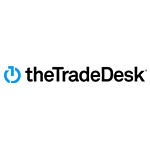
Case Study / Technology Company
The Trade Desk
Streamlining Separation of Duties for SOX Compliance in Oracle ERP Cloud
The Challenge
“As we were doing the implementation, our concern was that when we were in the Intacct environment, system limitations required a lot of extra SoD conflict rule sets to monitor and a lot of extra manual controls. With Oracle, there’s a lot more system functionality that prevents that, but we were still concerned about going into the new system and missing something. But Fastpath provides an off-the-shelf standard ruleset for Oracle, which has proven to meet all of our needs. What you’re hoping for with this kind of software is that there’s nothing left to chance, and that is exactly what we have experienced with Fastpath.”
Michael Higgins, Sr. Manager, SOX Compliance, The Trade Desk
The solution
The results
“It’s been very positive,” said Michael Higgins, Senior Manager, SOX Compliance for The Trade Desk. “We have over 1,200 global users and more than 100 people in accounting and finance roles across three geographies. All are up and running on Fastpath. The revenue team is super happy to be able to generate critical change reports using the audit trail module.”
On his end, Michael says the processes around Fastpath reporting monthly on conflicts, which he and the associate assistant controller address, has been working consistently, along with the twice-yearly SoD analysis. He also likes the fact that Fastpath put him in touch with a consultant who provides him with best practices, evaluating the company’s setup to ensure they are using Fastpath to its fullest. Incidentally, the answer to that question of using Fastpath to its fullest was a resounding “Yes”. The Trade Desk is indeed maximizing Fastpath reports and the Controls Library as well as the mitigation features. The SOX team was also given the responsibility to manage user access reviews and role reviews to ensure there were no role conflicts and no SoD conflicts within the roles. “As we were doing the implementation, our concern was that when we were in the Intacct environment, system limitations required a lot of extra SoD conflict rule sets to monitor and a lot of extra manual controls,” said Michael. “With Oracle, there’s a lot more system functionality that prevents that, but we were still concerned about going into the new
system and missing something. But Fastpath provides an off-the-shelf standard ruleset for Oracle, which has proven to meet all of our needs.” But that’s not the end of the story. Around the time the Oracle implementation was completed, Fastpath rolled out the audit trail module. This was fortuitous because Michael’s team discovered that there were required reports that Oracle was not equipped to provide. After implementing the audit trail module, the revenue team was very happy that Fastpath allowed for reporting of changes and custom fields in customer master data. Michael and his team are happy, and the revenue team is happy, but perhaps more importantly, the company’s auditors are very happy.
After two years of comparing Fastpath with their internal tool, they are pleased with what they are seeing from Fastpath. Michael also points out that Fastpath has the flexibility to deal with somewhat of a moving target; as regulations change, it is able to provide information and answers to questions the auditors haven’t asked in the past, and if a new requirement pops up, Michael can easily reach out to Fastpath to discuss possible enhancements to the product to accommodate. Michael’s final statement says it all: “What you’re hoping for with this kind of software is that there’s nothing left to chance, and that is exactly what we have experienced with Fastpath.”



